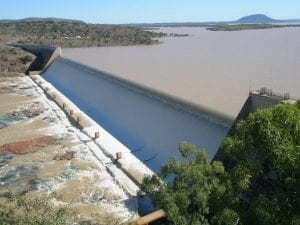 Whether the Newman government sells or leases Queensland’s assets, particularly those involved in the generation and distribution of electricity, the future costs to taxpayers will ultimately outstrip any instant benefit in relief from the government’s current debt levels.
Whether the Newman government sells or leases Queensland’s assets, particularly those involved in the generation and distribution of electricity, the future costs to taxpayers will ultimately outstrip any instant benefit in relief from the government’s current debt levels.
The simple reason is this, NO-ONE will invest a red cent into a business that has a deteriorating financial outlook. The only exception to this might be T2 investors (Telstra), who were either misled, or had more money than sense.
Firstly, let’s look at Energex retail, sold off in 2007 to Origin and AGL. These purchasers bought billing rights at a cost of $1,500.00 per customer. There was no exclusivity to these customers in an openly competitive market and therefore these companies could only lose customers, not gain customers except from each other. The retailer margin at this time was around four cents per kilowatt hour, which offered a sensible return on investment.
Seven years later and one of the least competitive retailers is Origin. The reason? There is no need for Origin to use their small margins to increase turnover because there is no point. Commercial viability and profitability has been guaranteed by legislation that was put in place to protect commercial enterprises from having to perform efficiently and competitively under the guise of essential services.
The four cent margin that existed when Origin took on these customers has now been stretched out to eight cents, with four of those cents guaranteed by legislation as a legitimate distribution expense. This is absurd. A commercial entity is guaranteed a retainer and can use the other margin they have to either compete or assign to profits, either way income is assured. If the government enjoyed the same framework and still had the asset they would be rolling in money.
The first casualty of these sales will be efficiency and competition. Queenslanders are already paying ever increasing network charges – even though network expansion has been substantially halted by summer peak-busting solar PV. There is absolutely no way that once these assets are sold off , that the purchasers will stand back and allow legislation to degrade the revenue models the purchase was based on.
You can guarantee the government (the taxpayer) will be slugged with new revenue protective regulations and straight out compensation payments to these investors should renewables continue to be allowed to thrive and these entities fade further.
This terrible policy direction can only be described as a desperate grab for money by governments who are desperate to hold onto popular votes and do not have the leadership credentials to simply raise taxes, either temporarily or permanently and explain the necessity for having to do so to a reasonably intelligent population.
Rob Campbell is CEO of Vulcan Energy










